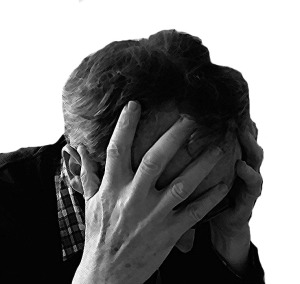Choices about how we live our lives are nearly always made in a social context. When we make a choice we have others in mind. We are affected by what others want and need, what others think about what we’re doing, and how others will react. Recent research is beginning to uncover the degree to which we act as independent individuals. It shows how much we rely on our social networks to inform what we do. Alex Pentland, director of MIT’s Media Lab’s human dynamics group, has found that ‘people are much more influenced by their social networks than by individual incentives’. His research demonstrated, ‘The largest single factor driving adoption of new behaviours was the behaviour of peers. Put another way, the effects of this implicit social learning were roughly the same size as the influence of genes on your behaviour, or your IQ on your academic performance.’ This finding undermines the idea of the free-thinking, independent person who makes rational choices about their best interests. Pentland talks about ‘the power of the social fabric on individual decision-making’.
This raises some interesting questions about choice and control in social care. Behind the notion of choice and control is the idea of a rational decision-maker pursuing his or her best interests, either on their own or, in a co-produced arrangement, with the support of a benevolent, and equally rational worker or advocate.
Now, let’s put in place the social context.
People who need social care often have a social fabric that is atypical. Their ‘network’ may comprise of other people who share their condition or dilemma, a range of professional interveners and a family that has to a greater or lesser extent been de-stabilised by that condition or dilemma. People may have plummeted in status within their social network or found themselves with a new and strange network of people who are all struggling with the same social status problems. Some people, for example, people who have had a stroke, may have made a sudden shift from high status member of a community, frequently engaged with other high status community members, to an isolated member of that community with a very uncertain and problematic status. In such circumstances people, as they try to decide for the best, may lose many of the key social reference points that made decision-making a relatively straightforward matter. Before, it was relatively easy to determine the right thing for ‘people like me’; now, it’s not so clear. With such uncertainty, people may have very low expectations. They may be part of a peer network that has very little to offer. If I find myself in a care situation with many other people experiencing similar disadvantages, there is little to take my sights any higher than the the norm for that group. In that context my choices are severely constrained. This gives us an explanation of why so many people settle for what they have. Pentland writes: ‘most of our public beliefs and habits are learned by observing the attitudes, actions and outcomes of peers, rather than by logic or argument.’ So, when our peer network changes or is disrupted, our attitude to what life could be like changes along with it.
For some, popular culture can (in a very small way) come to the rescue here. Working with people with learning disabilities, I have found that soaps on tv, pop groups and footballers are widely recognised and followed. While people’s immediate peers may have very low expectations, the icons of popular culture provide evidence that there is a life beyond that provides hint of something different.
Finally, we should give some thought to people for whom the social context, even in the best of times is highly problematic. This group includes some people with autism and dementia. By imagining what it would be like not to be able to refer to others (including the wider culture) when we make simple decisions, for example about what to eat, what to wear, where to go in our free time, where to shop, what to watch on tv, our understanding of their dilemma improves. So many of our decisions rely on what we have learned from our peers, colleagues and families and involve a mind-reading act (‘What would they think of me doing this?’). Take away that social learning and mind-reading capability and decision-making becomes a different kind of activity altogether.

